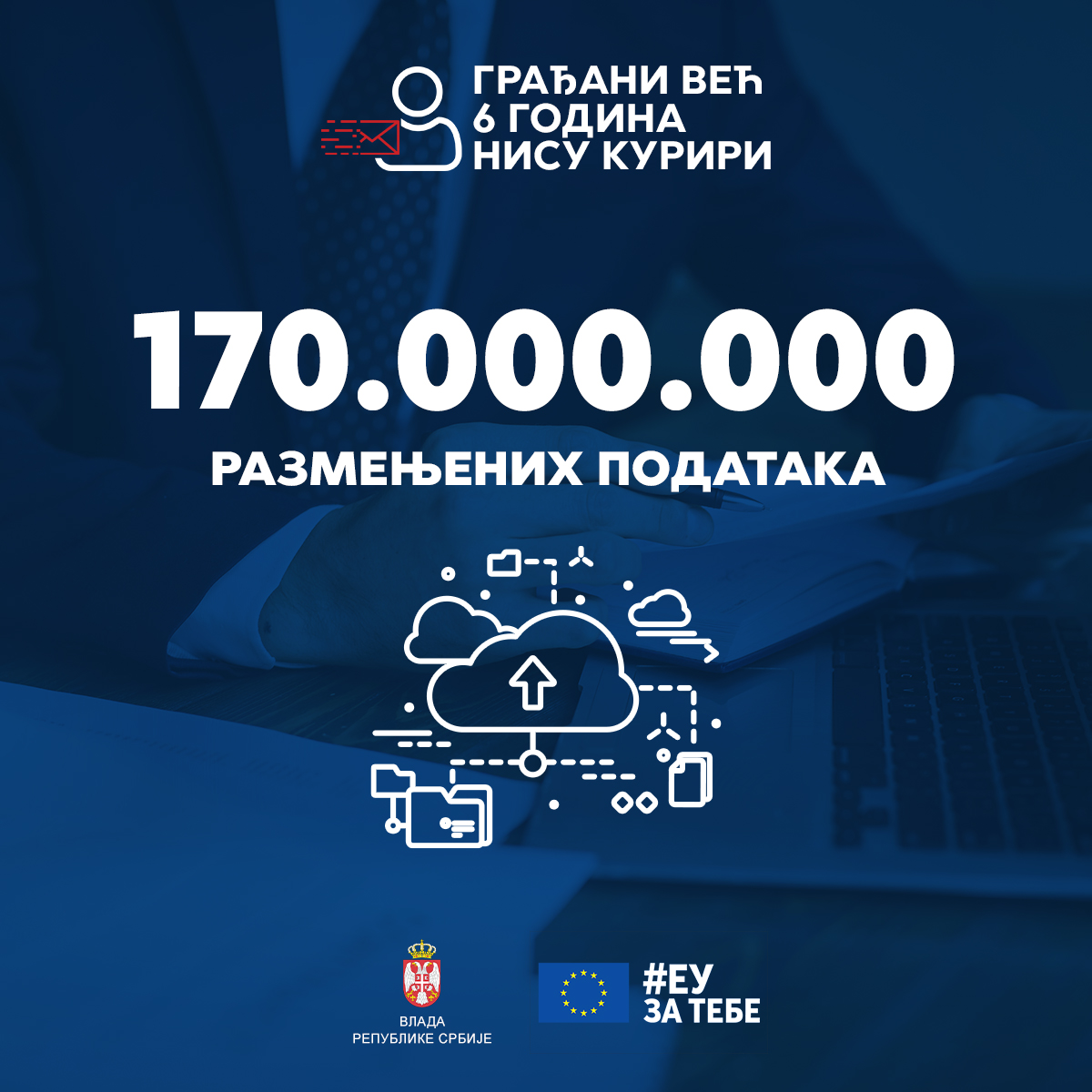
The Ministry of pUBLIC Administration and Local Self-Government, as the national coordinator of Public Administration Reform in the Republic of Serbia, in cooperation with other relevant institutions, had marked six years since the launch of the famous e-ZUP – the first software for exchanging data and electronic documents between the administrative bodies.
The former e-ZUP, which was established in June 2017 on the basis of the Law on General Administrative Procedure, today known as the “Information System for Data Exchange”, has remained a symbol of the success of the reform and the driving force behind the development of e-administration. Its introduction, in the first year alone, had saved citizens nearly 500,000 hours of waiting at the counters, while the State saved approximately RSD 20 million on printing and issuing papers. The system had started as e-ZUP, while today, in its wider scope, it represents the Government Service. Bus (GSB).
In six years, the public administration had exchanged more than 170 million data through rapid communication through GSB, thus making life easier for the citizens and facilitating business operations for the economy. The Government Service. Bus is an “electronic postman” that has been efficiently sending documents between public administration bodies for six years, thus preventing citizens from acting as “couriers” of the administration.
In addition, thanks to the implemented Public Administration Reform and, above all, the development of e-administration, the citizens have received three million electronic decisions, i.e. documents, in their eInboxes from public administration authorities. Also, empowered by the “Pay” service on the eGovernment Portal, citizens did not have to go to the bank or post office ten million times to pay fees for services provided by MoI or vehicle sales tax. They did all this in an online environment by using credit cards, i.e. through electronic or mobile banking. The “Pay” service is part of the ePayment+ system through which other administrative fees can also be paid.
One example of a successfully implemented reform is the procedure for enrolling a child in primary school. In the past, citizens had to go to one of the counters at least four times and get a birth certificate, certificate of attendance in a preparatory preschool programme, proof of the child’s medical examination, proof of residence of the parents or other legal representative. Today, thanks to the eEnrolment information system, when enrolling a child in primary school, parents are not required to submit any of the documents in paper form. The school procures everything through the GSB in electronic form ex officio.
Also, the purchase of an apartment or other real estate previously required at least five visits to the counter in order to obtain a tax return, a certificate proving the ownership of the real estate and that the real estate is not under some kind of encumbrance, as well as a real estate purchase contract, proof of ownership of the real estate and proof of marital status. It is important for citizens who intend to buy real estate to know that everything is now done automatically and electronically.
The Ministry of Public Administration and Local Self-Government of the Republic of Serbia, in cooperation with all administrative bodies, and with the support of the European Union, shall continue to work on the Public Administration Reform with the aim of realizing the set vision – building an “Administration tailored to all of us”.
Photo gallery – source: MDULS



